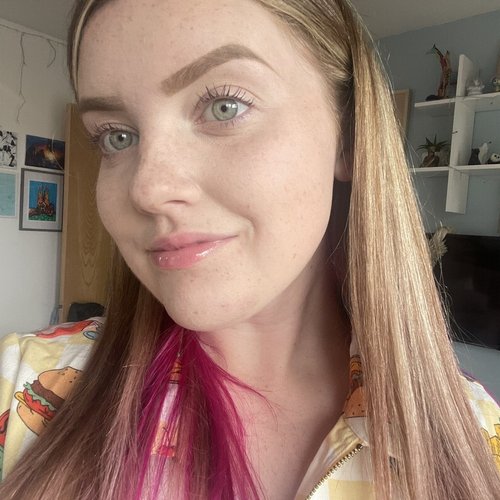Eating disorders and neurodivergence: Julie-Anne's story

Unlike many who are given a label such as anorexia or bulimia for their eating disorder as soon as they begin treatment, Julie-Anne’s condition falls in a category much less talked about or understood. OSFED, or ‘other specified feeding or eating disorder’, is a term for those who don’t fit neatly into one set of symptoms.
Sadly, Julie-Anne has had a long and painful journey towards gaining this diagnosis. After being referred to CAMHS at sixteen, she began receiving support for OCD – but when it came to her eating disorder, she was left in the dark. “No one actually told me anything at all about what eating disorder they thought I had”, she says.
After repeated chasing, a full year on from being referred, Julie-Anne was finally informed that she had an eating disorder of an ‘unspecified nature ‘(i.e. OSFED). She had known she was struggling with food from as young as twelve without being able to put a name to it. But as soon as she learnt about OSFED, she says, everything clicked into place. “The unspecified label just made so much more sense to me”.
“I’ve worked alongside my OCD and neurodivergence rather than ignoring it”
While Julie-Anne credits the treatment she received with saving her life, in many ways it didn’t feel right for her as a neurodivergent young woman with a complicated diagnosis. “They are a service designed for Anorexia and neurotypical people – and that doesn’t work for everyone”, she says. Going forward, however, she has been able to find treatment with a more holistic approach. “My best recovery has been where I’ve worked alongside my OCD and neurodivergence”, she says, “rather than ignoring it”.
As well as professionals, Julie-Anne’s own family struggled to know how best to support her. Since hers didn’t look like depictions of eating disorders they’d seen before, at first they failed to understand its seriousness. “Because it didn’t meet a stereotype, it was more difficult to grasp”, she says. Thankfully things these days are far better, and her parents have gained much more understanding of OSFED and how to support Julie-Anne’s recovery. “We’ve now got to the point where we can talk openly about it”.
“[Bake Off] was the first time I’d heard the term OSFED used on TV”
Julie-Anne is sure that more seeing more varied depictions of eating disorders in the media would have helped her feel less lonely on her recovery journey. But watching series 10 of The Great British Bake Off, she was thrilled to hear contestant Steph Blackwell describe herself using the OSFED label. “That was the first time I’d heard someone use the terminology on TV”, she observes. “It would be really nice to see some more representation of eating disorders where it’s not clear cut”.
“My life is so much fuller now than I could have imagined”
The act of baking itself has also played an important role in Julie-Anne’s recovery. “I bake as a form of mindfulness, to challenge perfectionism, and to keep a positive connection with food”. Even on days when her mental health is worse (periods she chooses to refer to as ‘flairs’), pushing herself out of her comfort zone helps Julie-Anne stay positive. “I’m very big on opposite actions and CBT challenging”, she says. “If I’m feeling shy and want to hide away, instead I do really colourful hair, makeup and clothes”. Would 16-year-old Julie-Anne have believed how far she’s come? Absolutely not, she reckons. “My life is so much fuller now than I ever could have imagined
More stories
21 February 2025
“Having been on both sides can be helpful in understanding people’s ambivalence towards recovery”, he reflects. “Sometimes it can feel weird when things start to get better… and that’s ok”
Read more21 February 2025
Molly’s experience of childhood was markedly different from most people’s. She and her brother were young carers for her mum, wh
Read more21 February 2025
These days, Shaun seems the personification of confidence: working as a mental health advocate, giving Ted Talks, and visiting e
Read more